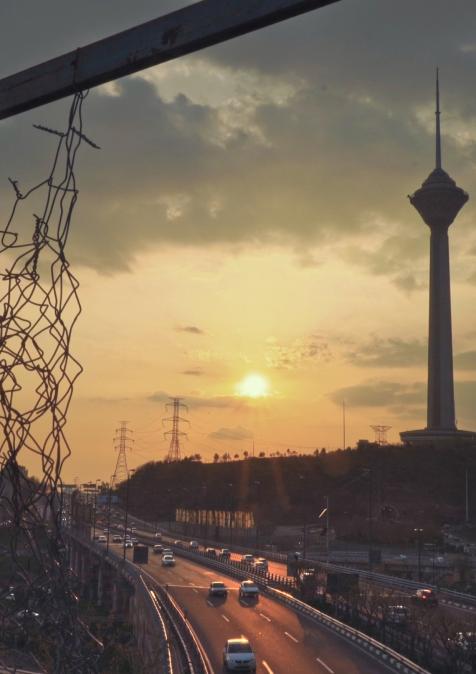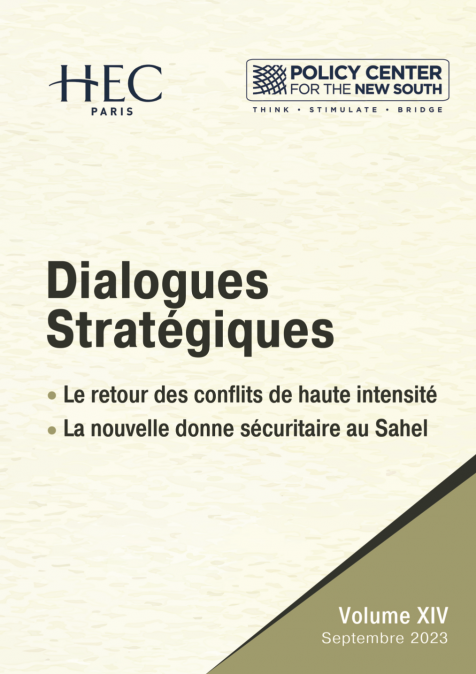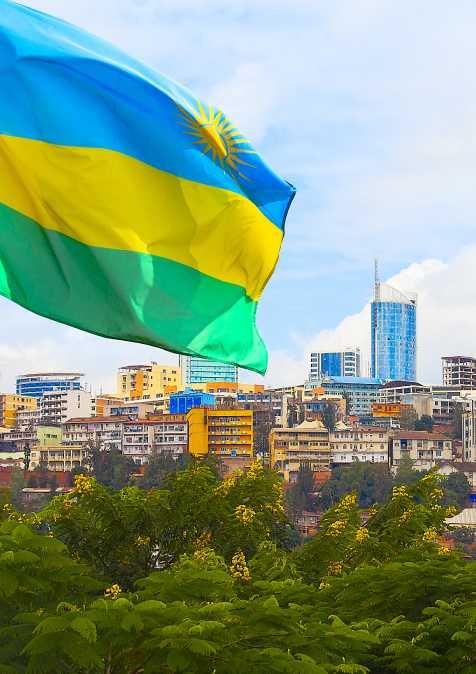Publications /
Opinion
Nusrat Farooq is an international security and policy expert whose research is at the intersection of emerging technology, international relations, and trust and safety. She is a 2022 alumna of the Atlantic Dialogues Emerging Leaders program. Learn more about her here.
With the advent of social media more than a decade ago, and now with the emergence of generative artificial intelligence, international security has become increasingly complex in terms of its cross-sectoral and transnational nature. Multilateralism as the only response to international security concerns is an outdated lens; multi-stakeholderism is the new fresh lens.
--
At the Atlantic Dialogues Conference in Morocco in December 2022, one of the focus areas was on multilateral solutions to global problems relating to democracy, technology, and security. As one of the thirty Atlantic Dialogues Emerging Leaders (ADEL’22), working at the forefront of technology and security, my goal at the conference was to shift conversations beyond multilateralism. With the advent of social media almost 15 years ago, and now with emerging technologies such as generative artificial intelligence, threats to international security have become increasingly complex in terms of their cross-sectoral and transnational nature. Multilateralism as the only solution to these threats is old-school; multi-stakeholderism is new-school.
At the heart of multilateralism are interactions and agreements between nation states. This system is a closed system of multiple governments, with non-government entities facing a barrier to entry. As an example, the United Nations system, institutionally, is a multilateral system. Nation states are the main entities in this system. Even though ‘multilateralism’ has the prefix ‘multi’ in it, the system is unidirectional in nature. In other words, problem solving in this system is analyzed and solved with only one mindset, which is through the lens of the state. This mindset assumes ‘nation states alone have the legitimate authority to solve the world’s complex problems.’
What this mindset misses is the multidimensionality of the current international security landscape, and the fact that diversity and complexity in approaching these concerns should be at the heart of the solutions. Multilateralism alone cannot solve multi-stakeholder problems. The multilateral system needs reform, as multiple stakeholders are dealing with, and trying to resolve, the same international security issues as nation states.
Christchurch Call is a good example of main actors in international security shifting from multilateralism to adopting multi-stakeholderism. In 2019, an Australian far-right extremist shot 51 people in two mosques in Christchurch, New Zealand. He live-streamed the attack on Facebook, 4000 people saw it live before Facebook took it down. Within the first 24 hours after the attack, Facebook removed 1.5 million videos of the attack and blocked 1.2 million attempts to upload the video. The shooter had written a 74-page manifesto of his ideology. Two months after the attack, New Zealand Prime Minister Jacinda Ardern and French President Emmanuel Macron brought together Heads of State and Government, and leaders from the technology sector to adopt the Christchurch Call.
The Christchurch Call has been a successful case study of multi-stakeholdersim in international security. The Call community has now evolved into a multi-stakeholder community of “over 130 governments, online service providers, and civil society organizations acting together to eliminate terrorist and violent extremist content online.” It’s supporters include 55 governments such as the United States, the United Kingdom, Kenya, Chile, Tunisia and 18 online service providers including OpenAI, Discord, Google, Amazon, X, Meta. The call also has eleven civil society organizations as partners in addition to a diverse multi-stakeholder Christchurch Call Advisory Network.
Every year, the Christchurch Call holds its Annual Leaders Summit in which it invites leaders from government, the tech sector, partner organizations, and civil society to advance its multi-stakeholder role in “elimination of terrorist and violent extremist content online.” The leaders discuss current challenges and efforts to solve these challenges, make efforts to include voices of impacted communities and discuss new emerging technology impacting millions of lives online. In November 2023, in its fifth Leaders Summit in Paris, the Call leaders focused on responding to two current international security challenges. The significant volumes of violent and extremist content in the wake of Israel-Hamas war and the misuse of generative artificial intelligence in creating such content, which “glorifies or promotes violence, antisemitism, and Islamophobia.”
The Call leaders endorsed working together with the multi-stakeholder community, engaging with tech sector while respecting human rights online, continuing to onboard relevant experts, working on risk assessment to mitigate the risks of misuse of Artificial Intelligence (AI) in creation of terrorist and violent extremist content, building on existing work by online service providers to align AI content governance tools with the Call’s commitments, benchmark and evaluate the Call’s work and improve strategic oversight, transparency, and communication about the Call’s impact and value. This kind of multi-stakeholderism in international security has been around for some time now and is the new best available tool.
The math of multistakeholderism is simple. It is compensatory and combinatorial in nature. The deficits in a multilateral system, such as the lack of voices from academia, civil society, or tech, are compensated for in the multistakeholder system. The combinatorial nature of the multistakeholder system takes into account the health of each sector and combines diverse experience and expertise. This is why multi-stakeholderism is both compensatory and combinatorial in nature.
However, the threats to international security are complex and diverse. Activities in one country can impact activities in others and not necessarily in the same window of time. For example, in 2022, three years after the Christchurch shooting, an 18-year old New Yorker shot 10 Black people in a grocery store in Buffalo, New York, and live-streamed the shooting on Twitch. In his 180-page manifesto, he claimed to have drawn inspiration for the shooting from the Christchurch shooter. He also claimed allegiance to a violent group of killers that spans six countries and that has a decade-long history. This shows how violent extremists get influenced from each other online, and conduct acts of violence offline which then has a significant impact online in terms of content and offline in terms of more attacks on innocent people. This labyrinth of online-offline makes the problem complex. Therefore, in today’s world, threats to security are not only transnational in nature, they can impact both the online and offline worlds for decades to come.
That is why threats to international security require a 360-degree multi-stakeholder approach to resolve them. Attempts to solve these transnational, multi-timezone, multidimensional threats through a multilateral lens limit our thinking and ability to solve the problem. The same logic applies to other global problems, including those related to human rights, poverty, and climate change, which are also components of international security. Hence, multilateralism in general is an outdated lens, and multistakeholderism is the fresh new lens through which to look to solve the intricate problem of threats to international security. Whether we call it a reformation of multilateralism or adopting multi-stakeholderism, the benefits of a multi-party lens are numerous, and it is the way forward.








